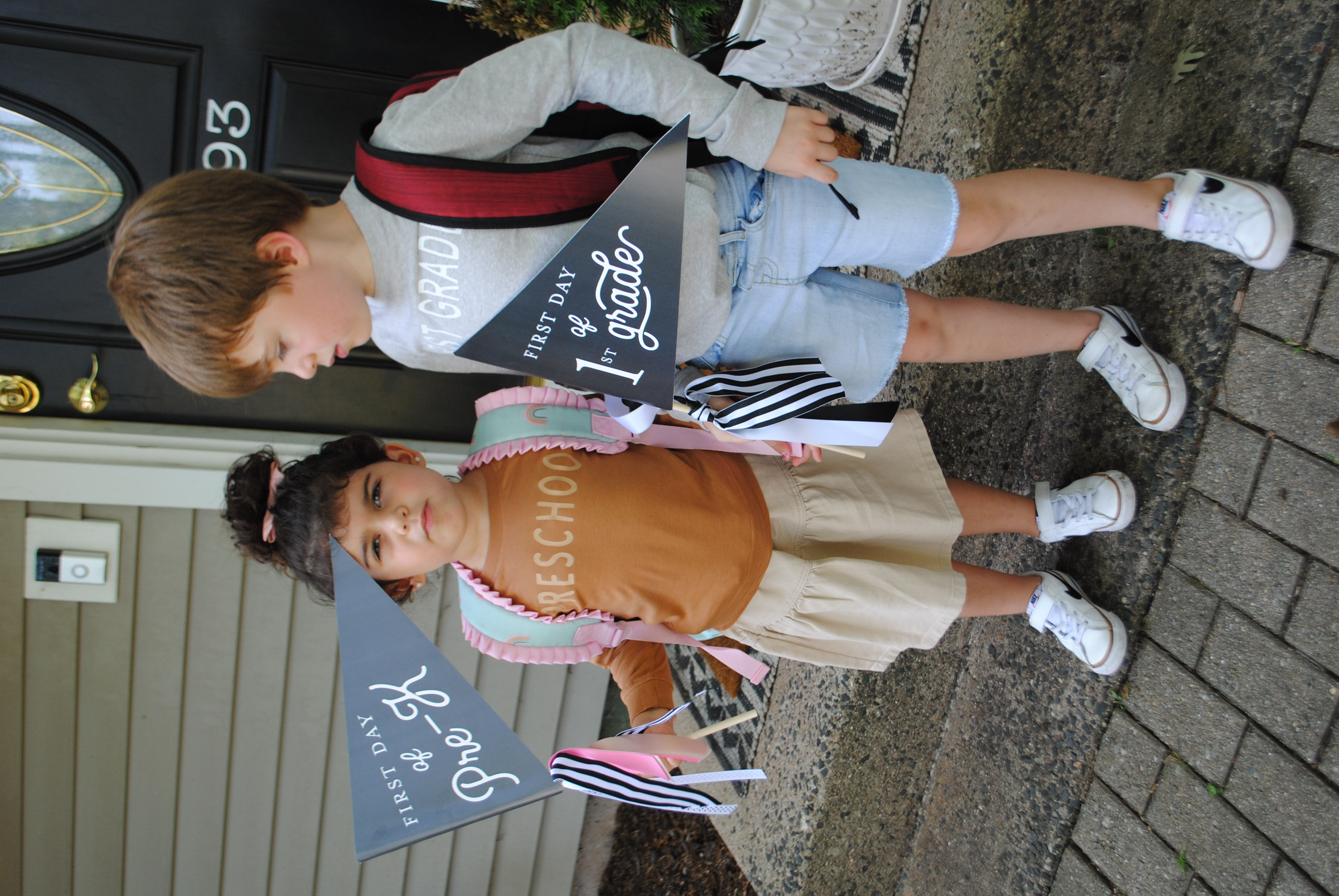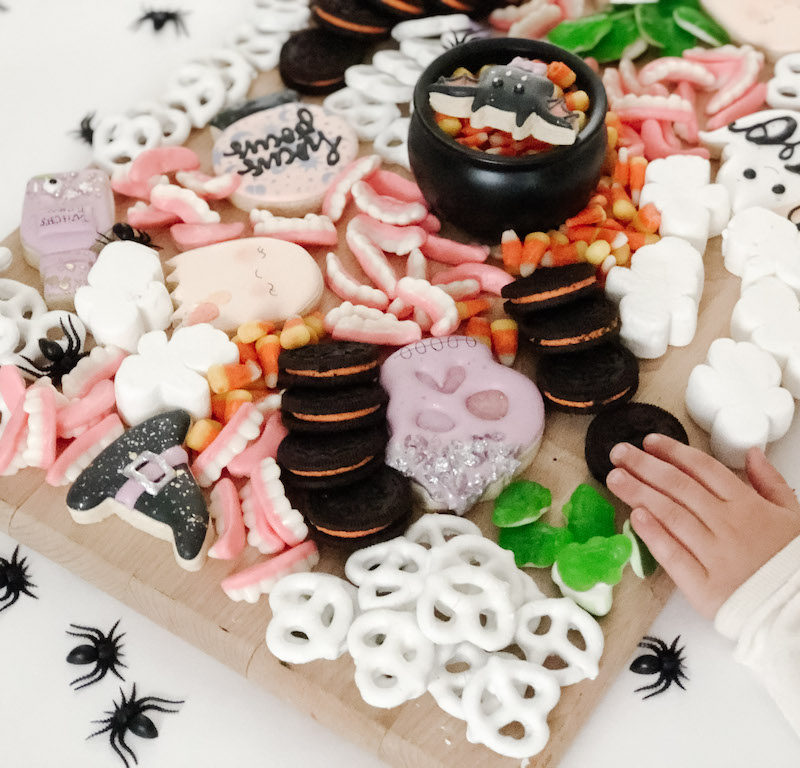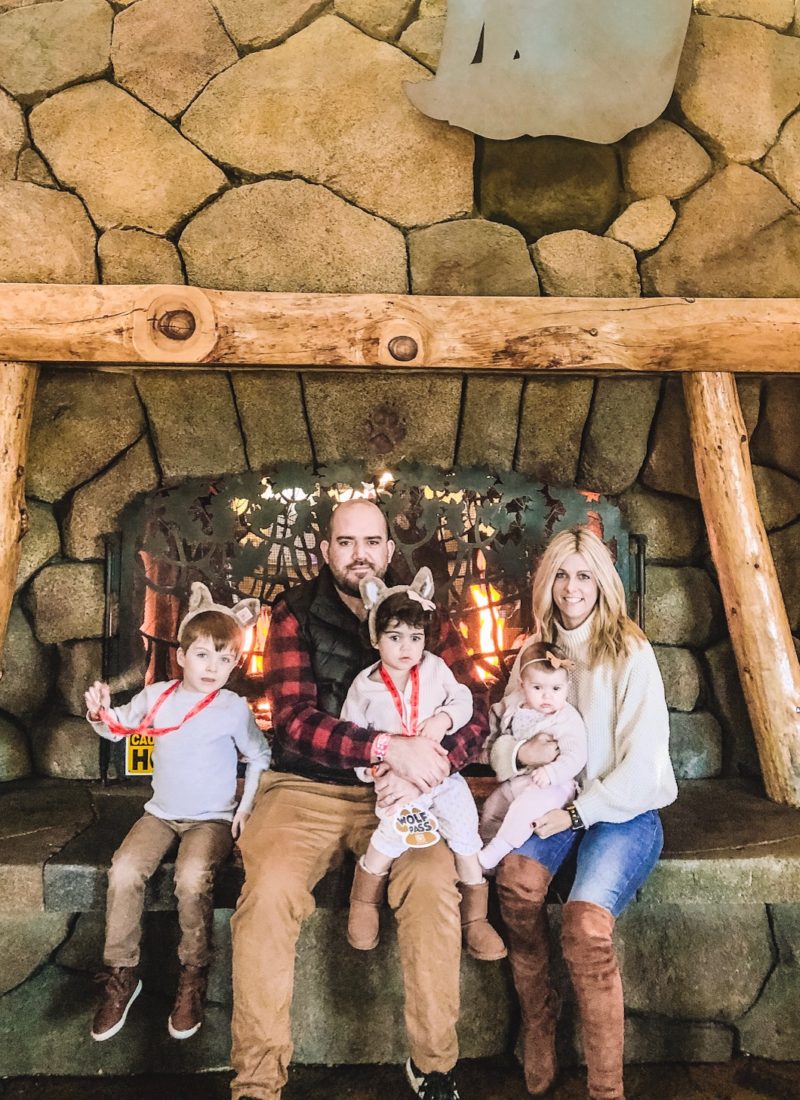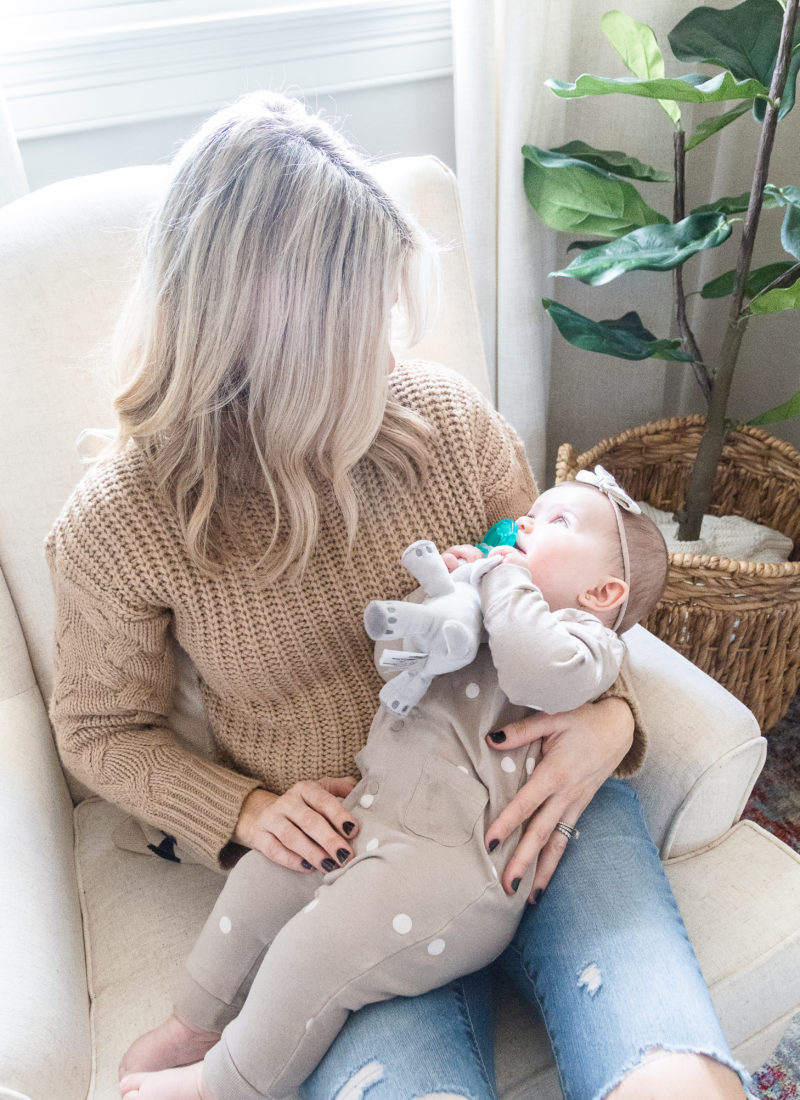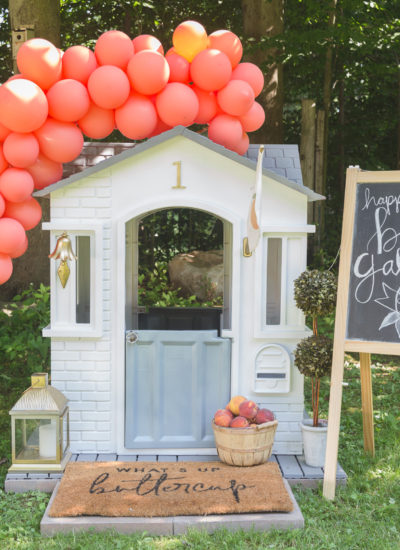It was March of 2020 and my son had a few months left of preschool. It was the first time I was able to take my daughter in a mommy and me class at our local Park and Rec. department. I was told that we should get to our local store to load up on toilet paper, I thought people were kidding. Fast forward to one a few months later and my son finished his final year of preschool at home without getting to say goodbye to his friends. All their programs were canceled and life was ripped out from under them, as it was for all of us, but the little ones weren’t able to grasp and understand “why”.
I made the hard decision to keep my son and daughter home for distance learning for kindergarten and preschool. A tough decision because they needed socialization. My son did really well and always completed his assignment, but it was a daily struggle. My daughter had no interest in learning from me no matter how fun or engaging I was.
Distance learning from home was far from easy, but it was also a time I will never forget. I got an extra year home with my son and daughter and we were together. We ended school each day by 1:00 and we had the rest of the day to play outside.
We are now a couple weeks out from going back to school and I have been preparing my children for a month now. Aside from the normal preparations of new clothes and school supplies, I am preparing them mentally and emotionally.
Here are some transitional tips that I felt are helpful:
Pre-plan School Support
Some kids are entering an entirely new school this year. A new building, new friends and teachers. It can be very overwhelming. A couple weeks ago, I reached out to my sons principal and within one day she had a personal school tour lined up for him. She greeted him and asked him questions about himself and his summer. He instantly felt less anxious and began to open up to her. She showed him all the necessary rooms that he would need to know. Then she gave him a final test for the tour: he had to lead us back to the school office. Guess what? He did it! He has such an incredible memory. But the most important takeaway was that he now knew his school. It wouldn’t be a shock to him on the first day. He now knew the layout.
Prior to the tour, if you asked my son what he was most excited about with school, he would have told you he didn’t want to go. After the tour, he couldn’t stop talking about his school. He told his sisters about his room, the lunch room and how big the gym was. It changed his perspective and eased his mind (and mine too).
Aside from the public school system, private preschools also allow for children to take tours of their facility. I would definitely recommend calling the office or finding an email to the school personnel, state tour concerns and reason for the email. We are all in this together and I know people will be accommodating to your child’s needs.
Contact your schools social work department and brief them on your child’s situation. If your child ends up having a hard time transitioning, the school social worker will already know your child and you will have a plan of action.
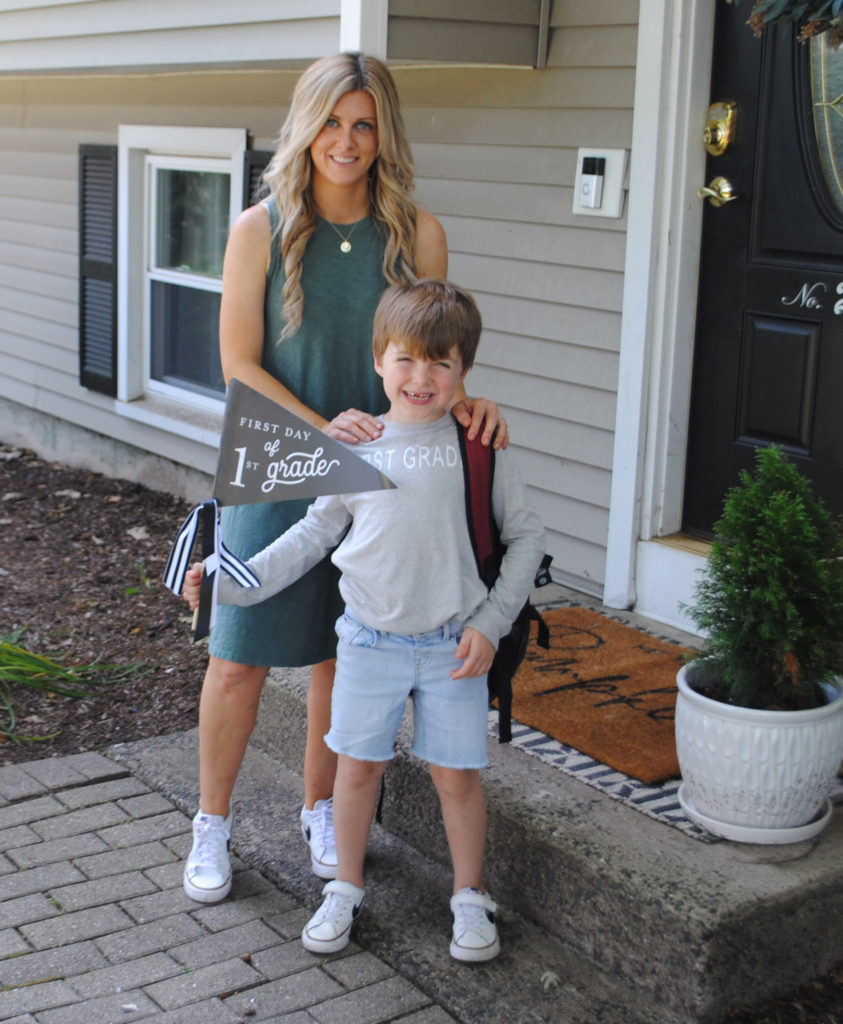
Set a routine
The summer can lead us to a more flexible routine. Personally, my kids have a designated time that they eat every single day, because the will just lead into meltdowns of hunger otherwise. My kids are young and still get up pretty early, so the time isn’t going to be a problem, but they do take their time with eating.
Begin with a consistent bedtime. Children need at least 9-12 hours of sleep depending on their age. To be honest, my kids have never been good sleepers, but I try to get them down by 7:30 with a book and get them to unwind.
Start building a breakfast routine. Eat breakfast, brush their teeth, get dressed and do their chores. I will have their clothes picked out the night before. We make it a team effort and everyone is on board in knowing we can’t change our minds in the morning. By following a morning routine, you are setting a tone for the day and creating structure.
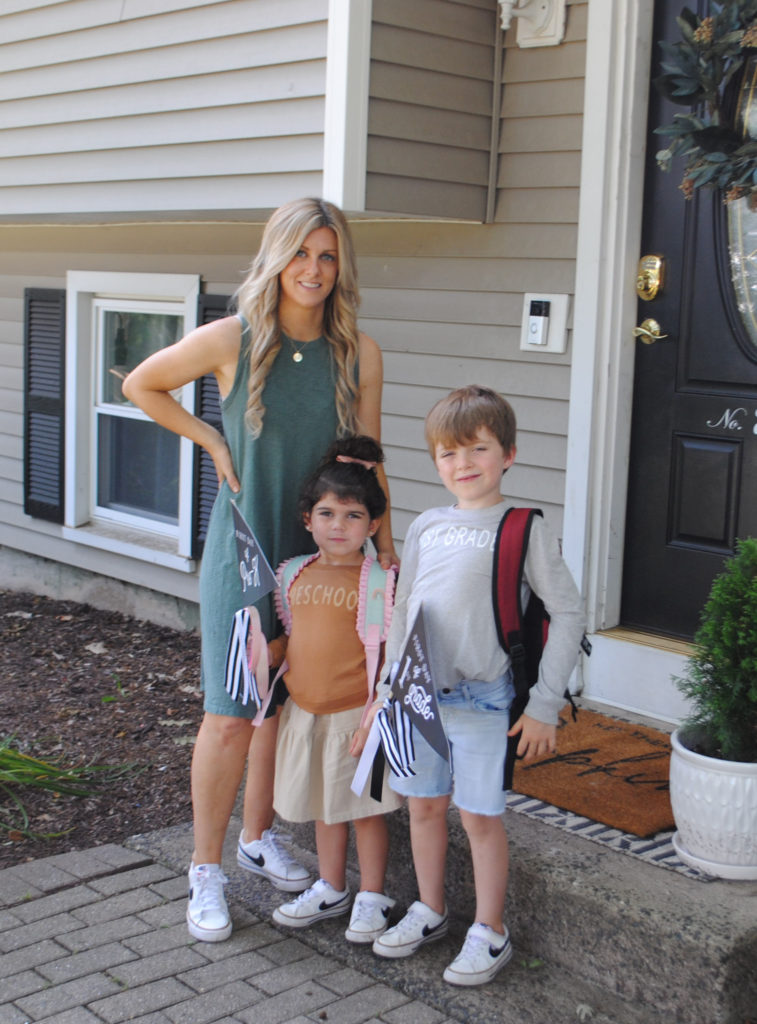
Start to limit screen time during the day.
Introduce a sticker chart to make their new routine a little easier. Every time they complete a task for their routine, they get a sticker. By the end of the week, they can be rewarded with ice cream, picking out dinner or having a friend over.
Listen and problem solve
Every day I talk about school with my kids. Allowing them to hear about the positive and exciting things they will encounter gets them exited too. My son likes to know what to expect. I told him what he could probably expect on his first day: walking to his classroom, meeting his teacher and new friends, putting his supplies in his desk, telling the class about his summer. I explained that his first day would look the same as it did for distance learning, only now he would be in a physical classroom and have a little more interaction with friends.
As your child how they are feeling. Tell them that we all have first days that make us feel nervous, even adults. Everyone is going through a first day together, whether they were distance learning or in a classroom last year.
It’s ok to feel sad. It’s ok to be scared. It’s ok to be nervous. They need validation and reassurance in knowing that these feelings are normal. They also need to know that they have a safe environment and they can open up at any time to express these feelings.
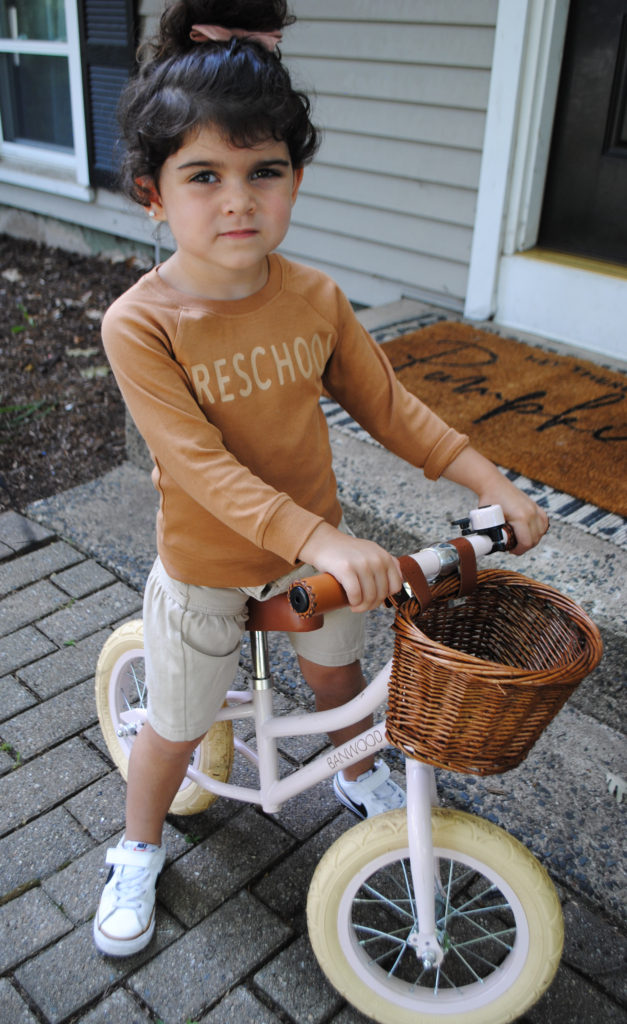
Focus on the positive
Praise your child for being so brave and courageous. My son was able to get us back to the office at the end of our tour. I told him how proud I was and that I would have gotten us lost if I didn’t have him by my side. Even though elementary school kids won’t be alone in school, it makes them feel incredibly safe that they know the ins and outs of their school as well.
Keep talking about the awesome experiences they will have in school: making new friends, bringing crafts home and playing recess outside with kids their own age.
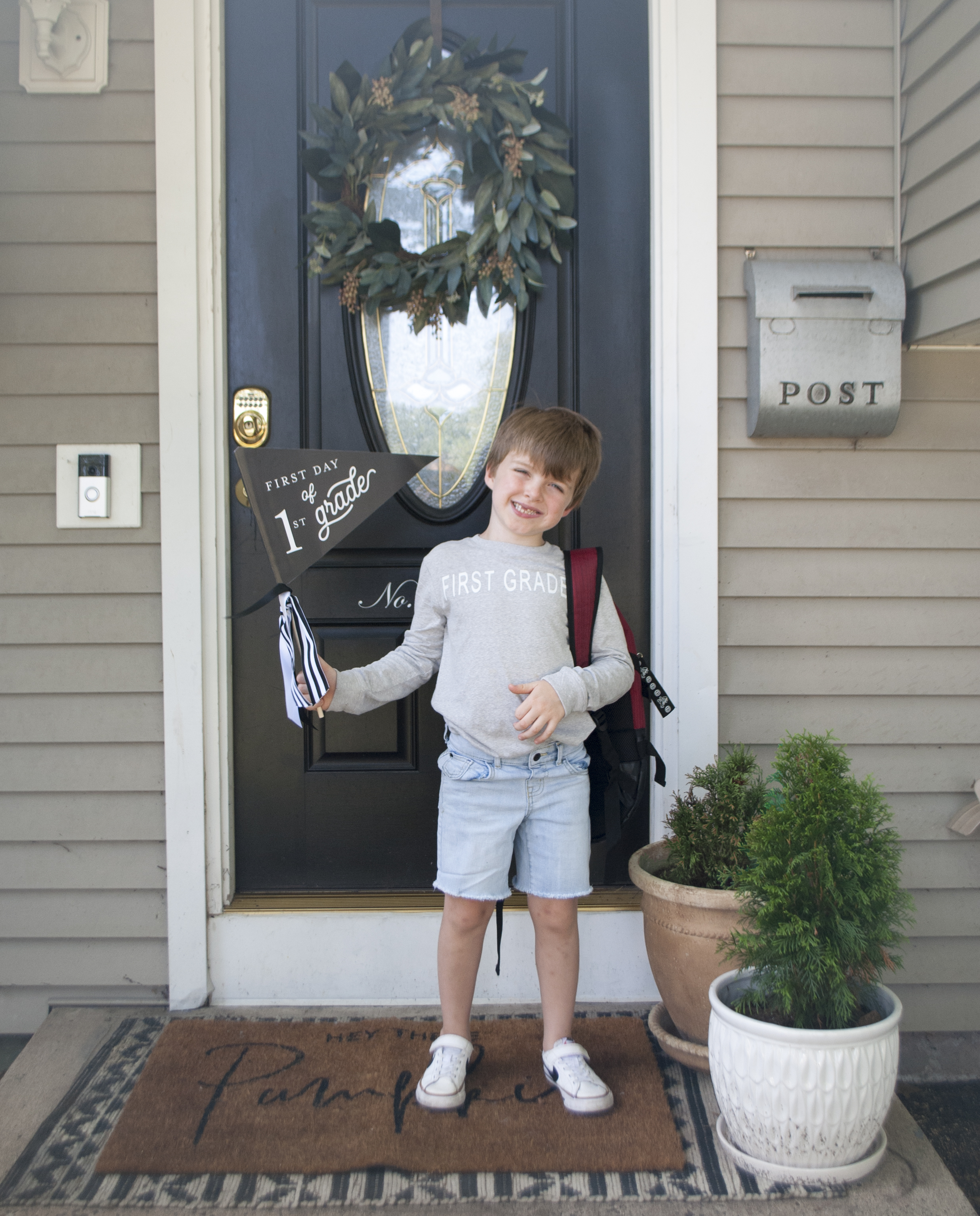
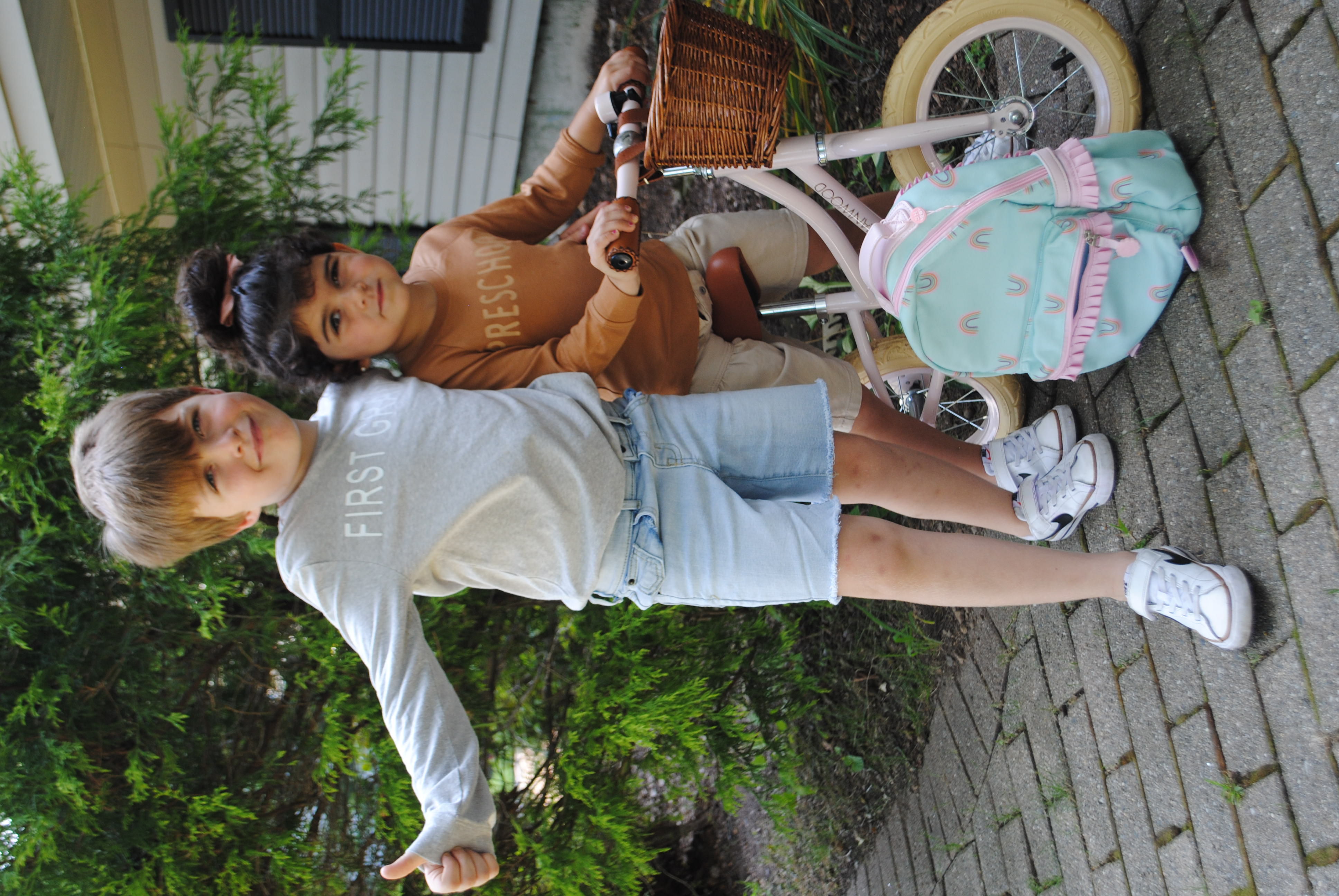
Keep channels of Communication Open
Be intuitive. Keeping checking in and asking how they are feeling. Make sure their attitude, behavior and sleep are not changing. This is a completely new chapter in their lives. Stay in tune with their needs.
My best advice is to have friends over their own age. Get the kids to talk amongst themselves and tell each other how awesome school is. At the same time, it’s good for parents to have friends over as well to provide reassurance. We also need to know that things will be ok and we are doing a good job. It takes an emotional drain out on us as well.
Give yourself some grace. Not only is your child going through an emotional and exhausting life-changing event, but so are you. Keep communication channels open and be in tune to your child, you know them best. If you feel that your child is having a difficult time adjusting, it’s ok, reach out to the social work department in your school. They will be able to have one on one time with your child and make the transition process a little smoother.
We are all in this together.
